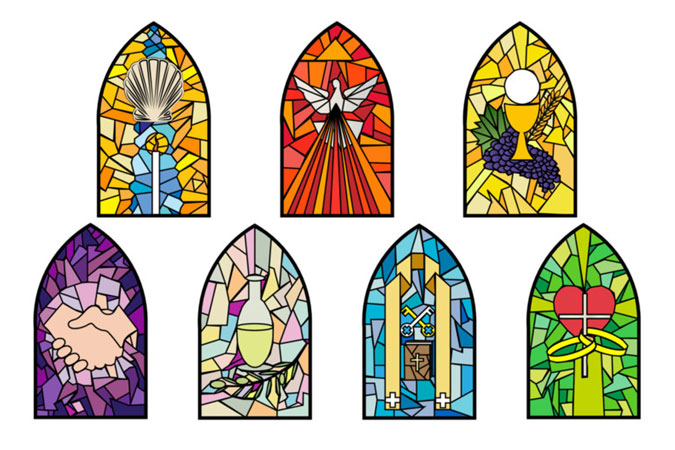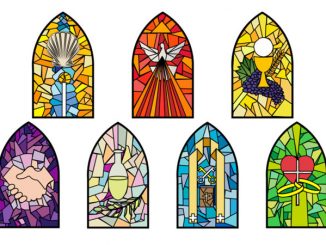
This month I’m revisiting my book, A Well-Built Faith: A Catholic’s Guide to Knowing and Sharing What We Believe, with the notion of keeping our faith simple without dumbing it down or making it simplistic. The truth is, while there have been many great thinkers and intellectuals throughout our Church history, the Church was founded by fishermen and tax collectors and a hodgepodge of men and women disciples who were everyday, common folks with little or no education. They understood the basics of our faith, which is grounded in a relationship with Jesus and his Church. Today we look at the second of the four pillars of our Catholic faith: the sacraments.
So, how do we keep the sacraments simple-yet-not-simplistic?
It begins with the notion that every symbolic action invokes a narrative—it tells a story. When a child falls down and scrapes a knee, he or she goes to Mommy or Daddy and asks her or him to “kiss it and make it better.” Now, we know that this act is symbolic and does not heal damaged cells at the molecular level, but we do it because we know that it does make it better! The symbolic act transports the child from a narrative of fear and pain to one of love and comfort—and things do begin to get better.
In our Catholic Tradition, we have many powerful, symbolic actions that make up our sacramental life. When we light a candle, pour water, anoint with oil, lay on hands, or trace the Sign of the Cross, we invoke a narrative. And what is that narrative? One of rescue, restoration, and reassurance—the three “R’s” of the Good News. The sacraments are not magic, just as “kissing it and making it better” is not magic. But, like that and every other symbolic action, they “work” by invoking a narrative—telling a story. And it is through the proclamation of that story that we encounter the One who rescues, restores, and reassures us: Jesus Christ!
For more about how the sacraments “work,” see my book, Living the Sacraments: Finding God at the Intersection of Heaven and Earth.





Be the first to comment